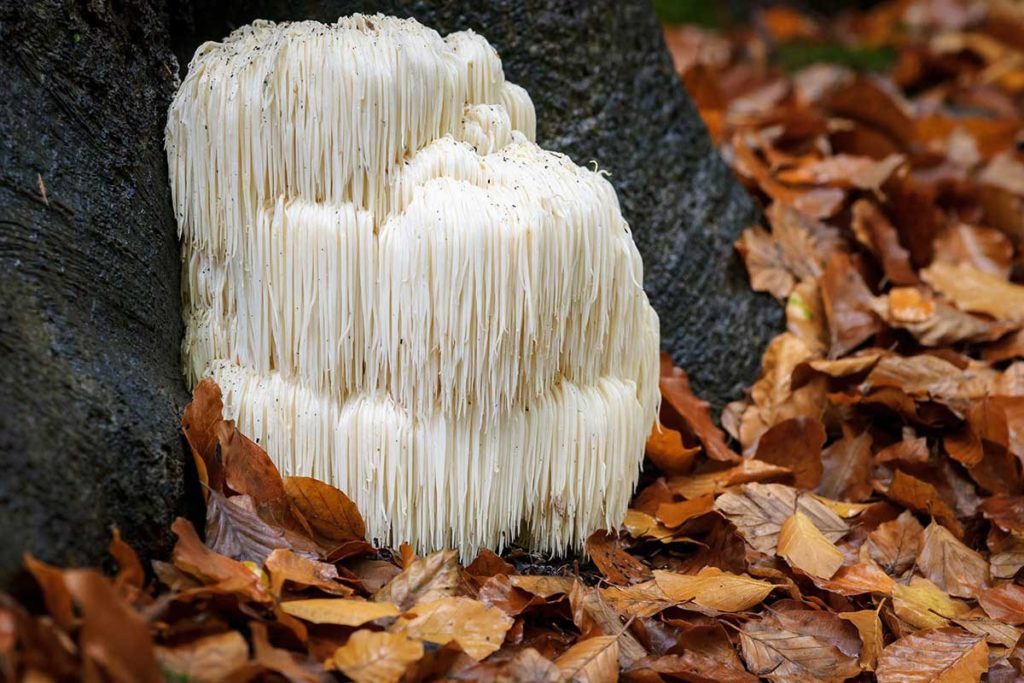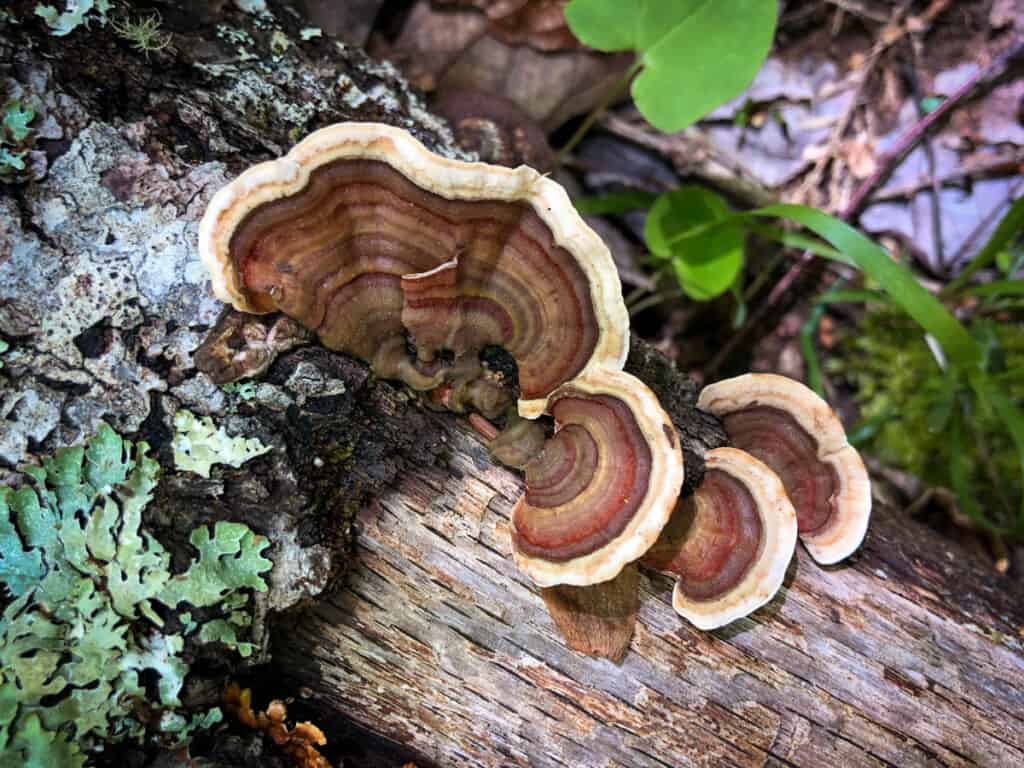When we hear the word “mushroom,” we often think of the kind you cook with or use recreationally. But there’s another type – medicinal mushrooms – that are criminally underrated when you consider the amazing list of benefits they provide.
In this article, we’re going to look at five medicinal mushrooms and their proven health benefits.
Medicinal Mushrooms – 5 To Try Today For Incredible Benefits!
1. Chaga Mushroom
Many people, including David Wolfe, call chaga mushroom “The King of Mushrooms” – and there’s a good reason for that!
Chaga mushroom grows on birch trees in the northern hemisphere. To the untrained eye, chaga might look like a clump of dirt. Experts can spot it by looking for its orange tissue. (1)
Chaga mushroom contains an incredible amount of nutrients. That includes (2, 3):
- Potassium
- Copper
- Selenium
- Zinc
- Manganese
- Calcium
- Fiber
- Vitamin D
- B-complex vitamins
- Fiber
- Antioxidants
Interestingly, there is also a host of studies that suggest chaga mushroom may slow cancer growth.
Further, one study in mice found that chaga supplements caused tumors to shrink by 60%. (6)
In other research, scientists found that chaga extract reduced cancer growth in human liver, lung, breast, prostate, and colon cells. (7, 8, 9, 10)
Researchers believe that chaga’s potential anti-cancer capabilities are due to its antioxidant-richness. These antioxidants may also play a role in chaga’s ability to reduce your body’s “bad” LDL cholesterol levels. (11)
2. Reishi Mushroom
While many people call chaga “King of Mushrooms,” reishi mushroom has earned the nickname “Queen of Mushrooms.”
Reishi mushroom has been a staple of Chinese medicine for thousands of years – and for good reason.
It’s an adaptogenic herb, meaning it helps your body ward off negative side effects of stress. Like chaga mushroom, reishi contains powerful antioxidants that combat stress and may strengthen your defences against cancer.
But perhaps one of reishi mushroom’s best-known functions is its ability to boost the immune system. (12)
Research shows that one of the mechanisms reishi uses to achieve this is alteration of your white blood cells’ inflammation pathways. (13)
Some research also suggests that reishi mushroom may reduce fatigue, anxiety and depression symptoms.
The study in question looked at 48 breast cancer providers and determined that reishi mushroom increased their quality of life and decreased their depression and anxiety symptoms after four weeks of taking reishi powder. (14)
Reishi mushroom can also increase natural killer cell activity, which in turn fights off infections and may help fight cancer. (15)
It’s worth pointing out, however, that while research suggests many of these mushrooms contain anti-cancer properties, that doesn’t mean they’re approved as a cancer treatment, nor are they guaranteed to prevent cancer.
Watch: The David Wolfe Team Harvests Reishi Mushroom In North Carolina
3. Lion’s Mane Mushroom
Research shows that lion’s mane mushroom extract can reduce memory loss and neuronal damage in mice caused by mechanisms similar to what produces Alzheimer’s disease. (17, 18, 19, 20)
The extract appears to work by reducing the impact of amyloid-beta plaques, which build up in the brain during Alzheimer’s.
Further, research shows that lion’s mane mushroom powder can improve mental functioning. The study in question looked at older adults with mild cognitive issues and found that the powder significantly improved their mental ability. These benefits disappeared when the test subjects stopped using the powder. (21)
Lion’s mane mushroom may also help reduce mild depression and anxiety symptoms. (22)
How does it do this? The mechanisms aren’t totally clear, but research suggests it may have to do with how lion’s mane extract improves functioning and regenerates cells in the hippocampus. (23)
4. Cordyceps Mushroom
Cordyceps mushrooms may increase exercise performance thanks to their ability to boost adenosine triphosphate (ATP) production in the body. This molecule delivers energy to your muscles and can help your body make better use of oxygen during exercise. (25)
In one study, researchers gave 20 healthy adults either one gram of cordyceps or a placebo. The participants who received the cordyceps saw significant improvements in markers for fitness performance. (26)
Cordyceps mushroom may also provide anti-aging benefits and reduce fatigue. Research suggests this may be due to cordyceps’ antioxidant capabilities, which fight free radical damage. Current theories of aging and body breakdown suggest that free radical damage is the root of several types of degenerative damage. (27, 28)
5. Turkey Tail Mushroom
Turkey tail mushroom is packed with antioxidants that prevent oxidative stress caused by those pesky free radicals. In one study, researchers detected more than 35 different antioxidants in turkey tail mushroom. (29)
These antioxidants fall under the “phenolic” category. Phenols reduce inflammation and help your body release protective nutrients. Further, turkey tail mushroom may improve gut health thanks to the prebiotics it contains. (30)
Proving this, in one study researchers observed turkey tail mushroom suppressing E. coli growth. The mushroom also improved overall gut health in the subjects. (31)
Medicinal Mushrooms – The Takeaway
While traditional medicine has relied on medicinal mushrooms for centuries, it wasn’t until recently that modern medicine began confirming some of their benefits. In this article, we looked at five popular medicinal mushrooms and their science-backed benefits.To harness these and other mushroom benefits, check out our mushroom protein powder and mushroom tinctures!
On that note, please be sure to consult with a medical professional before you take medicinal mushrooms. These products are not intended to diagnose or treat any disease as they are not FDA-regulated.



